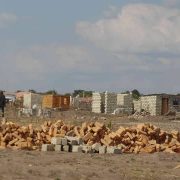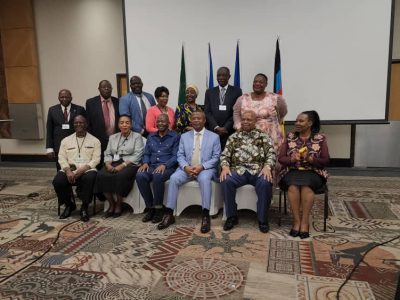President of the Pan-African Parliament (PAP), Chief Fortune Charumbira, has delivered a rallying call for deeper continental unity and enhanced legislative collaboration as Africa grapples with a growing list of socio-economic and political challenges.
Speaking at the official opening of the National Assembly of Benin in Porto Novo on Thursday, Chief Charumbira painted a sobering picture of the continent’s current state, urging African legislators to close ranks and take decisive action on critical issues affecting millions across the region.
“Our people still face the looming threat of food insecurity and malnutrition, the resurgence of unconstitutional changes of government, the expanding threat of terrorism and violent extremism across the continent, the growing refugee crisis, displacement of our citizens and statelessness arising from conflicts,” Charumbira said.
He listed a series of interconnected crises ranging from energy insecurity, economic instability, and illicit financial flows to youth unemployment, drug abuse, and human trafficking that he said are undermining the continent’s progress and potential.
“The aftershocks of the COVID-19 pandemic have exacerbated poverty, unemployment and youth unrest. Illicit financial flows are bleeding the continent of its much-needed financial resources. Disparate and inconsistent legislative frameworks are a hindrance to the common African market. The double scourge of drug abuse and human trafficking is decimating the demographic dividend that we should accrue from the youth,” he said.
Charumbira also took aim at enduring colonial legacies, including restrictive education systems and stifling trade barriers between African nations.
“The legacy of a colonial education system which does not foster entrepreneurship and innovation and undermines African cultural values, restrictions on the movement of people and goods between African countries which impinge intra-Africa trade and the implementation of the African Continental Free Trade Area,” he noted.
Addressing the escalating conflict and political instability across Africa, Charumbira raised serious concerns about the effectiveness of current intervention strategies, particularly those led by the African Union.
“You will agree with me that there has been an unprecedented escalation in conflicts on the continent over the past decade or so, despite the African Union’s avowed commitment to ‘silence the guns by 2030’,” he said. “The rise of coups and coups within coups in West Africa as well as the escalating conflicts in Sudan and the DRC point to the failure of all the intervention measures attempted to date by both the African Union and other stakeholders.”
Citing staggering figures from the Democratic Republic of Congo and Sudan, he laid bare the devastating toll of ongoing violence.
“The conflict in Eastern DRC has left over 1 million people seeking refuge abroad and more than 21 million in urgent need of humanitarian assistance. Similarly, in Sudan, over 15,000 people have been killed, and 8.2 million have been displaced, triggering the worst refugee crisis in the world today,” he said.
“These tragic realities force us to ask critical questions. Why has Africa failed to effectively address these conflicts? Why have the AU’s conflict resolution initiatives, such as the ‘Silencing the Guns by 2030’ roadmap struggled to yield tangible results? What role should the Parliaments play in advancing peace and stability?” he asked.
Looking ahead, Charumbira stressed the critical role of national parliaments—such as Benin’s in championing the African Union’s Agenda 2063, the continent’s strategic framework aimed at making Africa a dominant force on the global stage.









Comments